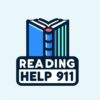
Reading assessments can help parents identify problems with basic reading skills. Reading is one of the most fundamental skills that a child needs to learn during their early years. It is the foundation for all future academic success, and parents play a critical role in helping their child develop these skills. According to research, the percentage of kindergarten students who are not at grade level when entering first grade can vary depending on a number of factors, including socioeconomic status, language background, and school district. However, studies have found that on average, between 30% to 50% of kindergarten students may not be at grade level in reading when they enter first grade. It’s important to note that early intervention and support can make a significant difference in improving a child’s reading abilities, which is why programs that help parents understand where their child stands in the process of learning to read can be so valuable.
Early childhood education lays the foundation for a child’s academic success. During this time, children begin to develop their reading skills, which are crucial for future academic success. Parents play a vital role in this process, as they are often the first teachers their child encounters. It is crucial for parents to understand whether or not their child is on track with their reading development.
Reading fundamentals refer to the basic skills necessary for reading. These skills include phonemic awareness, phonics, fluency, vocabulary, and comprehension. Phonemic awareness is the ability to identify and manipulate individual sounds in words. Phonics involves recognizing the relationship between letters and their sounds. Fluency refers to the ability to read smoothly and with expression. Vocabulary is the collection of words a child understands, and comprehension is the ability to understand the meaning of the text.
Parents need to understand whether their child has mastered these fundamental skills. This understanding can help parents identify any gaps in their child’s learning and provide additional support where needed. Early intervention is critical, as children who struggle with reading early on are at a higher risk for academic failure in the future.
To determine whether or not their child has mastered reading fundamentals, parents can observe their child’s behavior while reading. For example, if a child is struggling to sound out words, this may indicate a phonics problem. Similarly, if a child is reading slowly and with difficulty, this may suggest a fluency issue. Parents can also ask their child questions about what they are reading to gauge their comprehension.
It is important for parents to remember that each child develops at their own pace. Some children may grasp reading fundamentals quickly, while others may take longer. Parents should avoid comparing their child’s progress to others and focus on their child’s individual progress.
Understanding whether or not an early childhood student understands reading fundamentals is crucial for their future academic success. Parents play a vital role in their child’s development and should be aware of their child’s reading progress. By observing their child’s behavior while reading and asking them questions about what they are reading, parents can identify any gaps in their child’s learning and provide the necessary support. Early intervention is critical, as it can prevent future academic struggles and set the child up for success in the future.



